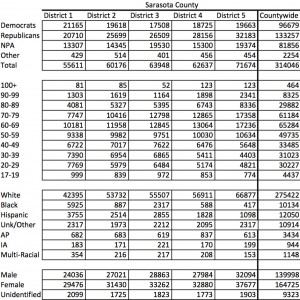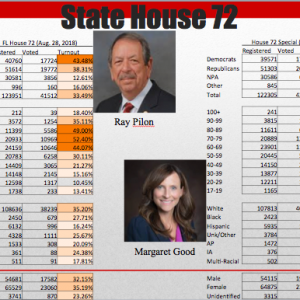Childhood Arrivals
Guest Correspondence
SRQ DAILY
SATURDAY MAR 11, 2017 |
BY DONAL O'SHEA
Under the Deferred Action for Childhood Arrivals program, young people who were brought to the United States illegally as children and who have since obtained a high school degree, or who have been honorably discharged from the military, could register with the federal government in exchange for temporary relief from the possibility of deportation, the opportunity to attend college and a two-year renewable work permit.
No one better exemplifies the value of the DACA program than New College graduate José Manuel Godinez-Semperio. An Eagle Scout and valedictorian of his high school class, José came to the US from Mexico with his parents at age nine on a tourist visa. He stayed here with them when they did not return. After graduating from New College, he entered the Florida State University College of Law, graduated with honors and passed the bar exam on his first attempt in 2011. Each step presented new obstacles to overcome, yet José never misrepresented his status. He registered for the draft. When the DACA program was introduced in 2012, José registered. As a result of DACA, a Florida Supreme Court ruling and action by the Florida legislature, José has been able to practice as an attorney and to make a difference in our state.
The DACA program provided José and another 750,000 young people who grew up in the United States with legal status. It made it easier to get a driver’s license, a social security card and a college education. There are an equal number who were eligible but who did not sign up.
No one asked these youths whether they wanted to be in this country. They had no choice. They grew up here and they came to love it, adopting it as their own. Now, some individuals are urging President Trump to terminate the DACA program and to deport them. Especially at risk are those, like José, who registered with DACA, those who trusted our federal government with their contact and biometric data, the information needed to find and remove them from the United States.
What reason could there be for wanting to deport this group? They are not criminals—the DACA program excludes criminals. They have been educated here. Some have bravely served in the military. They have much to contribute.
Some think that retaining DACA is rewarding the parents who sneaked the childhood arrivals into the country. Since when did we start punishing individuals for the sins of their fathers? Others feel that these children are using up resources better reserved for real citizens. This is short-sighted. For the young, these so-called resources—health, education—are actually investments. Deport them and our society does not benefit from the investment. Still others think we should deny children without paperwork an education. This is even more wrong-headed. A country creates a permanent underclass at its peril. And it is illegal. In the Plyler v. Doe decision in June 1982, the US Supreme Court held that states can not constitutionally deny students public education on account of immigration status. The court found that any resources that might be saved from excluding undocumented children from public schools were far outweighed by the harms imposed on society at large from denying them an education.
Ours is a nation of immigrants. We have taken the tired, the poor, the huddled masses yearning to breathe free. And they have helped build a great nation. The US has by far the highest number of Nobel Prize winners in the world. A third are immigrants, and more are children of immigrants. All six American Nobel prize winners this year are immigrants.
The saddest thing, and it is one that should spike the blood pressure of all of us, is that in the conversation on DACA, no one is even talking about paths to permanent residency or to citizenship. There are some who feel that DACA was an example of executive overreach. That may well be, but it followed the failure to enact legislation aimed at giving residency to an even smaller group of talented caring people who believe in the American dream, a group whom we desperately need. The DACA program is a Band-Aid, no question, but it is a critical one.
President Trump has indicated a “soft spot” for DACA types. On another occasion, he has advanced a willingness to consider comprehensive immigration reform. Both impulses are to be applauded and to be encouraged. May he do the right thing.
Dr. Donal O'Shea is president of New College of Florida.
« View The Saturday Mar 11, 2017 SRQ Daily Edition
« Back To SRQ Daily Archive










